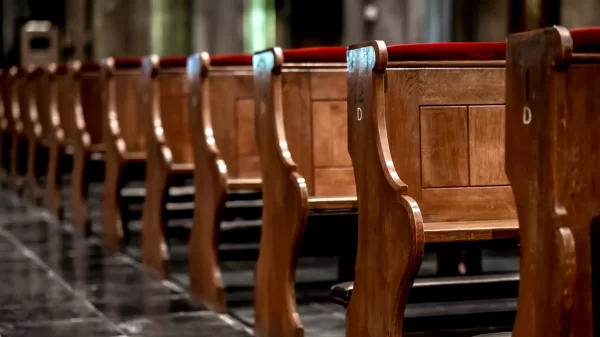By Bill Britt
Alabama Political Reporter
In Alabama, even when a jury recommends someone only receive life in prison, a trial judge in a capital murder case can ignore that recommendation and impose the death penalty. Sen. Dick Brewbaker (R-Montgomery) wants to change this practice, known as “judicial override.”
“The US Supreme Court has made it pretty clear that they do not like it and think this is a bad practice,” said Brewbaker in a phone interview with The Alabama Political Reporter. “Now that Delaware and Florida have gotten rid of it, Alabama is the only state that still practices it.”
“Since 1976, Alabama judges have overridden jury verdicts 107 times,” according to The Equal Justice Initiative (EJI). The group “committed to ending mass incarceration and excessive punishment in the United States,” also found that 92 percent of judicial overrides in the State “elected judges have overruled jury verdicts of life [in prison] to impose the death penalty.”
Brewbaker is presently the sole sponsor of SB16, which would prohibit a court from overriding a jury verdict in a capital case. Rep. Christopher England (D-Tuscaloosa) is sponsoring a similar bill in the Alabama House.
Under current law, the trial jury offers an advisory verdict, which may or may not be accepted by the presiding judge. The present statute reads, “While the jury’s recommendation concerning sentence shall be given consideration, it is not binding upon the court.”
“Let’s face it, judicial override runs contrary to the spirit of common law on which our laws are based,” Brewbaker said. “The jury is supposed to determine innocence or guilt. And if they make a recommendation on a sentence it should be honored and not just overridden by a judge. I think that is one reason the Supreme Court looks down on this practice.”
In an August article published in The Yale Law Journal, Patrick Mulvaney & Katherine Chamblee, in their work entitled Innocence and Override, found that recent rulings by The United States Supreme Court question the future of judicial override in Alabama.
“The United States Supreme Court struck down part of Florida’s capital sentencing scheme in January because ‘[t]he Sixth Amendment requires a jury, not a judge, to find each fact necessary to impose a sentence of death,'” they wrote. This, they concluded, “[led] to the Florida legislature eliminating the override in March, and the Delaware Supreme Court invalidating its own state’s override system on August 2, leaving Alabama as the only state that still permits the practice.”
Mulvaney and Chamblee cite examples of instances where a juror found a defendant guilty of capital murder at trial, but voted for life because of doubts during the penalty phase. This was the case in the trial of Larry Randal Padgett, who was sentenced to death by override in 1992, even though the jury voted 9-3 to recommended life. Padgett was later exonerated of the capital offense.
“I just think if we really want to preserve the death penalty statute, we have to get rid of judicial override in capital cases. That is really the bottom line,” Brewbaker stated.
In 2013, The United States Supreme Court turned down a request to hear a challenge to the State’s override sentencing scheme in Woodward v. Alabama, No. 13-5380, as reported by the New York Times.
Justice Sonia Sotomayor, citing a study by EJI showing overrides more prevalent in election years, dissented Alabama’s override sentencing saying it, “casts a cloud of illegitimacy over the criminal justice system: Alabama judges, who are elected in partisan proceedings, appear to have succumbed to electoral pressures.”
However, this refusal to consider Woodward v. Alabama was before the recent findings of the High Court concerning Florida’s sentencing scheme.
“It doesn’t seem to make sense to me to wait until the Supreme Court strikes down our death penalty statute just because we want to hold on to what arguably is a bad practice anyway,” said Brewbaker. “I think a lot of people, even if they think judicial override is a good idea, realize that in the long run, it will cost us the whole death penalty statute.”
If successful, Brewbaker’s bill will end judicial override, which has caused the State considerable controversy and may have resulted in the state-sanctioned murder of innocent individuals.
Brewbaker concluded, “I think it will get a favorable hearing. I hope it does.”






















































